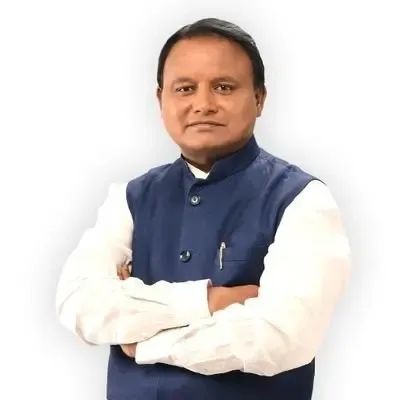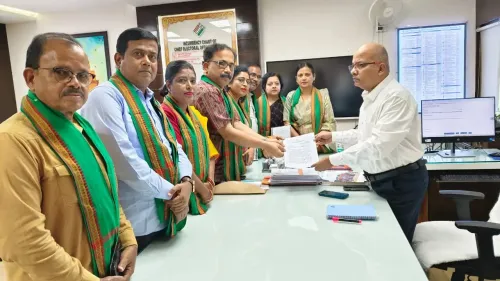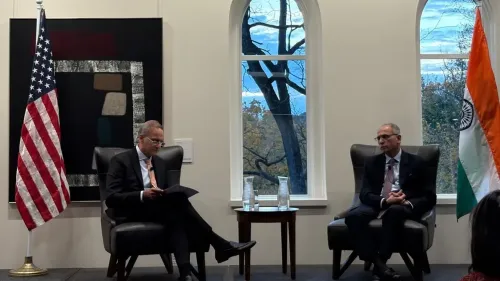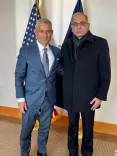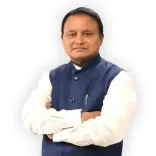How has Prime Minister Modi embodied Kautilya's philosophy?
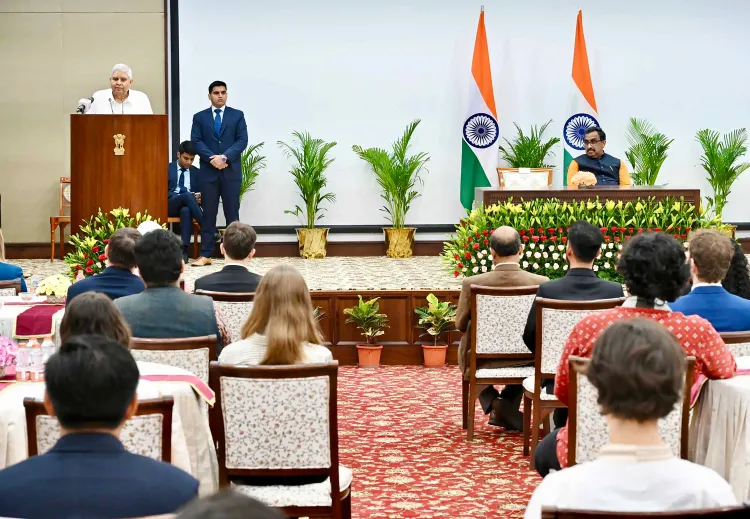
Synopsis
Key Takeaways
- PM Modi exemplifies Kautilya's governance principles.
- India's commitment to peace is longstanding.
- Democracy thrives on expression and dialogue.
- Historical values shape modern leadership.
- Transformative governance reflects in results.
New Delhi, May 8 (NationPress) Vice-President Jagdeep Dhankhar on Thursday hailed Prime Minister Narendra Modi as a remarkable visionary leader, drawing comparisons to Kautilya, the renowned strategist and author of the Arthashastra. During his address in the national capital, he remarked, “Our Prime Minister has truly demonstrated Kautilya's philosophy in practice.”
“Kautilya’s insights serve as a comprehensive guide to governance, covering every aspect of statecraft, security, the role of the monarch, and elected officials,” he emphasized.
Additionally, he reiterated India’s enduring commitment to being a peace-loving nation, highlighting that Bharat has always championed global peace, fraternity, and welfare.
These comments were made against the backdrop of India’s decisive action against terror camps, particularly in response to threats in Kashmir’s Pahalgam.
Just a day prior, Defence Minister Rajnath Singh asserted that the Armed Forces operate under the principles of Lord Hanuman, targeting only those who pose harm to India.
Further praising PM Modi, the Vice-President stated, “Our Prime Minister is a visionary who advocates for extensive and transformative change. The outcomes after a decade of governance speak for themselves.”
He commended India’s commitment to democracy and its principles since ancient Vedic times, noting that these values have enabled a Prime Minister to serve three terms after a gap of sixty years.
Reflecting on India’s rich civilizational heritage, he stated, “Democracy thrives best when expression and dialogue are complementary. This is what sets democracy apart from other governance forms. India has embodied democratic principles long before our Constitution came into effect or we gained independence from colonial rule.”
“The synergistic process of expression and dialogue, known in Vedic culture as Anant Vaad, has deep historical roots,” he concluded.

